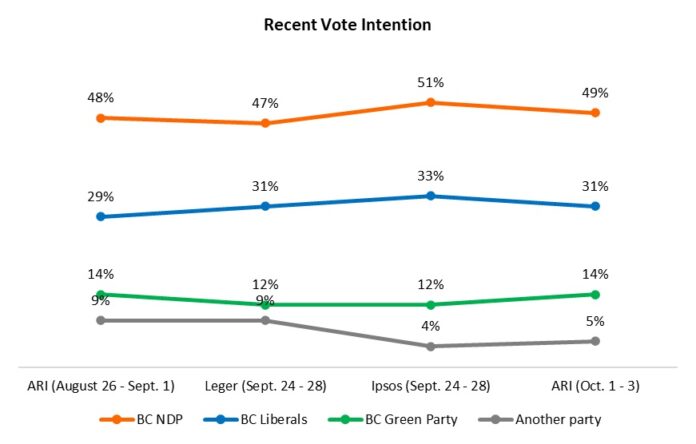THE incumbent BC NDP currently holds an 18-point advantage in pre-debate vote intention. 49 per cent say they will support John Horgan’s party, while 31 per cent say they will vote for the BC Liberals and 14 per cent the BC Greens. This dynamic is largely unchanged over the past month, according to the latest Angus Reid Institute poll.
Three-in-five British Columbians say that this election is unnecessary and should have been held next year. Notably, even 28 per cent of those who plan to support the NDP feel this way.
While it is early days so far, just one-in-three British Columbians say they are fully engaged in the campaign. Most are aware of it, but not closely following developments.
Just two-in-five voters say they’re absolutely certain which party they will support.
As one of the most unique provincial election campaigns in B.C. history runs through its third week, new data from the non-profit Angus Reid Institute reveals the issues of most importance to British Columbian voters – and the parties that do best – and worst – on those issues.
While its COVID-19 response continues to preoccupy the province most, matters that took precedence before the pandemic are also dominant. Housing affordability, health care, climate change, and economic growth are also ballot issues in this campaign.

But traditional differences highlight the perceived strengths and weaknesses of each party on these key issues. While the New Democrats are seen as best on social and health issues, the BC Greens continue to hold high ground on climate change, and the BC Liberals are deemed to be the strongest party on economic factors.
At this stage, these dynamics favour the BC NDP.












